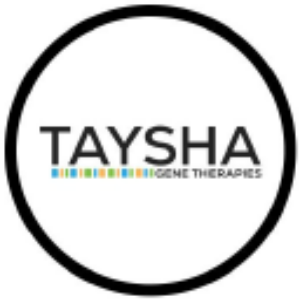Taysha Gene Therapies Announces Updates to TSHA-102 Clinical Program in Rett Syndrome
REVEAL adolescent and adult trial will proceed to high dose cohort following Independent Data Monitoring Committee approval of Company’s request to initiate dose escalation; dosing of first patient in cohort two (high dose, n=3) expected in Q2 2024
REVEAL adolescent and adult trial will now expand into the U.S. following submission to FDA (age 12+ protocol)
Dosing of second patient in cohort one (low dose) of REVEAL pediatric trial expected in Q1 2024 following Independent Data Monitoring Committee approval
Update on available clinical data from completed cohort one (low dose, n=2) in REVEAL adolescent and adult trial expected in Q1 2024; initial data from cohort one in REVEAL pediatric trial expected mid-2024; initial data from cohort two (high dose) in both trials expected in second half of 2024
DALLAS, Feb. 29, 2024 (GLOBE NEWSWIRE) -- Taysha Gene Therapies, Inc. (Nasdaq: TSHA) (“Taysha” or “the Company”), a clinical-stage gene therapy company focused on developing and commercializing AAV-based gene therapies for the treatment of severe monogenic diseases of the central nervous system (CNS), today announced updates to its TSHA-102 program in clinical evaluation for the treatment of Rett syndrome. The Independent Data Monitoring Committee (IDMC) approved the Company’s request to proceed to dose escalation in the REVEAL Phase 1/2 adolescent and adult trial, enabling earlier advancement to the high dose cohort of 1x1015 total vg. The IDMC also approved the dosing of the second patient in cohort one (low dose) of 5.7x1014 total vg in the REVEAL Phase 1/2 pediatric trial. The decisions follow IDMC review of available clinical data from the patients dosed with TSHA-102. The Company also announced the expansion of its ongoing REVEAL Phase 1/2 adolescent and adult trial in Canada into the United States (U.S.) following submission of the adolescent and adult trial protocol to the U.S. Food and Drug Administration (FDA).
“We have been quite encouraged by the initial safety and efficacy data demonstrated to date with TSHA-102 and are pleased that we are cleared to dose the second patient in our REVEAL Phase 1/2 pediatric trial, and importantly, that the IDMC approved our request to proceed to dose escalation in our REVEAL Phase 1/2 adolescent and adult trial earlier than planned. Advancing to the high dose cohort accelerates our ability to further inform our clinical development and regulatory plan for Part B of the study by at least a quarter,” said Sean P. Nolan, Chairman and Chief Executive Officer of Taysha. “Additionally, we believe expanding our ongoing REVEAL adolescent and adult trial in Canada into the U.S. will further support our goal to evaluate TSHA-102 across a broad range of ages and stages of patients with Rett syndrome. We are pleased with the progress we’ve made and remain focused on evaluating TSHA-102 as a potential treatment option for patients and families living with Rett syndrome.”
REVEAL Phase 1/2 adolescent and adult trial: a first-in-human, open-label, randomized, dose-escalation and dose-expansion study evaluating the safety and preliminary efficacy of TSHA-102 in adolescent and adult females aged 12 years and older with Rett syndrome due to MECP2 loss-of-function mutation. The trial is taking place in Canada and the U.S. TSHA-102 is administered as a single lumbar intrathecal injection. Dose escalation will evaluate two dose levels of TSHA-102 sequentially. The maximum tolerated dose (MTD) or maximum administered dose (MAD) established in Part A will then be administered during dose expansion in Part B of the study.
- Dosing in cohort one (low dose, n=2) is now considered complete.
- Update on available clinical data from completed cohort one of 5.7x1014 total vg expected in the first quarter of 2024.
- Dosing of the first patient in cohort two (high dose, n=3) of 1x1015 total vg expected in the second quarter of 2024.
- Initial safety and efficacy data from cohort two expected in the second half of 2024.
REVEAL Phase 1/2 pediatric trial: a first-in-human, open-label, randomized, dose-escalation and dose-expansion study evaluating the safety and preliminary efficacy of TSHA-102 in pediatric females with Rett syndrome due to MECP2 loss-of-function mutation. The trial is taking place in the U.S. and cleared in the U.K. TSHA-102 is administered as a single lumbar intrathecal injection. Part A of the study will focus on determining MAD and MTD in patients aged 5-8 years old. Part B is the dose expansion phase and will evaluate TSHA-102 at the MAD or MTD in two age cohorts (5-8 years and 3-5 years).
- Dosing of the second patient in cohort one (low dose, n=3) of 5.7x1014 total vg expected in the first quarter of 2024.
- Initial safety and efficacy data for cohort one expected in mid-2024.
- Initial safety and efficacy data from cohort two (high dose, n=3) of 1x1015 total vg expected in the second half of 2024.
About TSHA-102
TSHA-102 is a self-complementary intrathecally delivered AAV9 investigational gene transfer therapy in clinical evaluation for Rett syndrome. TSHA-102 utilizes a novel miRNA-Responsive Auto-Regulatory Element (miRARE) technology designed to mediate levels of MECP2 in the CNS on a cell-by-cell basis without risk of overexpression. TSHA-102 has received Fast Track designation and Orphan Drug and Rare Pediatric Disease designations from the FDA and has been granted Orphan Drug designation from the European Commission.
About Rett Syndrome
Rett syndrome is a rare neurodevelopmental disorder caused by mutations in the X-linked MECP2 gene, which is a gene that’s essential for neuronal and synaptic function in the brain. The disorder is characterized by intellectual disabilities, loss of communication, seizures, slowing and/or regression of development, motor and respiratory impairment, and shortened life expectancy. Rett syndrome primarily occurs in females and is one of the most common genetic causes of severe intellectual disability. Currently, there are no approved disease-modifying therapies that treat the genetic root cause of the disease. Rett syndrome caused by a pathogenic/likely pathogenic MECP2 mutation is estimated to affect between 15,000 and 20,000 patients in the U.S., EU, and U.K.
About Taysha Gene Therapies
Taysha Gene Therapies (Nasdaq: TSHA) is a clinical-stage biotechnology company focused on advancing adeno-associated virus (AAV)-based gene therapies for severe monogenic diseases of the central nervous system. Its lead clinical program TSHA-102 is in development for Rett syndrome, a rare neurodevelopmental disorder with no approved disease-modifying therapies that address the genetic root cause of the disease. With a singular focus on developing transformative medicines, Taysha aims to address severe unmet medical needs and dramatically improve the lives of patients and their caregivers. The Company’s management team has proven experience in gene therapy development and commercialization. Taysha leverages this experience, its manufacturing process and a clinically and commercially proven AAV9 capsid in an effort to rapidly translate treatments from bench to bedside. For more information, please visit www.tayshagtx.com.
Forward-Looking Statements
This press release contains forward-looking statements within the meaning of the Private Securities Litigation Reform Act of 1995. Words such as “anticipates,” “believes,” “expects,” “intends,” “projects,” “plans,” and “future” or similar expressions are intended to identify forward-looking statements. Forward-looking statements include statements concerning the potential of TSHA-102, including the reproducibility and durability of any favorable results initially seen in our first patient dosed in the REVEAL trial and the timing of dosing patients in clinical trials and availability of data from clinical trials, the potential of our product candidates to positively impact quality of life and alter the course of disease in the patients we seek to treat, our research, development and regulatory plans for our product candidates, the potential to accelerate the regulatory pathway for TSHA-102 and the potential benefits of Fast Track, Orphan Drug and Rare Pediatric Disease designations for TSHA-102. Forward-looking statements are based on management’s current expectations and are subject to various risks and uncertainties that could cause actual results to differ materially and adversely from those expressed or implied by such forward-looking statements. Accordingly, these forward-looking statements do not constitute guarantees of future performance, and you are cautioned not to place undue reliance on these forward-looking statements. Risks regarding our business are described in detail in our Securities and Exchange Commission (“SEC”) filings, including in our Annual Report on Form 10-K for the full-year ended December 31, 2022, and our Quarterly Report on Form 10-Q for the quarter ended September 30, 2023, both of which are available on the SEC’s website at www.sec.gov. Additional information will be made available in other filings that we make from time to time with the SEC. These forward-looking statements speak only as of the date hereof, and we disclaim any obligation to update these statements except as may be required by law.
Company Contact:
Hayleigh Collins
Director, Head of Corporate Communications, and Investor Relations
Taysha Gene Therapies, Inc.
hcollins@tayshagtx.com
Media Contact:
Carolyn Hawley
Inizio Evoke
Carolyn.hawley@inizioevoke.com









